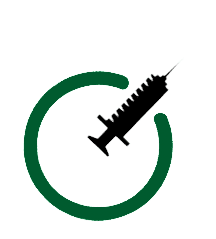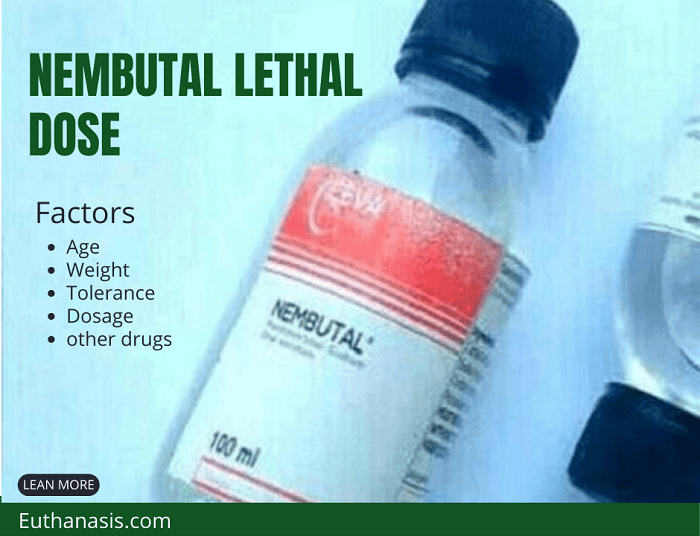Understanding Nembutal Lethal Dose: Risks, Considerations, and Alternatives
Nembutal, also known as pentobarbital, is a barbiturate drug that has a long history of medical use as a sedative, anesthetic, and anticonvulsant. However, it is also known for its controversial reputation as a lethal drug, with reports of its use in euthanasia, assisted suicide, and suicide. In this content piece, we will explore the concept of Nembutal lethal dose, including its mechanism of action, legal status, factors affecting the lethal dose, and ethical considerations related to its use.
Nembutal as a Lethal Drug
Nembutal is classified as a barbiturate, which is a type of central nervous system depressant. Barbiturates act by depressing the activity of the brain and nervous system, leading to sedation, anesthesia, and anticonvulsant effects. Due to their potential for abuse and overdose, barbiturates are classified as controlled substances in many countries and are subject to strict regulations.
Nembutal’s mechanism of action involves enhancing the activity of a neurotransmitter called gamma-aminobutyric acid (GABA), which inhibits the activity of nerve cells in the brain. This results in depression of the central nervous system, leading to sedation, respiratory depression, and potentially fatal effects in high doses.
Nembutal lethal dose
The concept of lethal dose refers to the amount of a drug that is estimated to cause death. The lethal dose of Nembutal can vary depending on various factors, including age, weight, tolerance, and individual response to the drug. It is important to note that determining an exact lethal dose of Nembutal can be challenging, as it may vary widely among individuals.
Reports suggest that the lethal dose of Nembutal in humans ranges from 2 to 10 grams, although lower doses may also be lethal in certain circumstances, especially in individuals with no tolerance to barbiturates.

Nembutal for Euthanasia and Assisted Suicide
Euthanasia, which is the act of intentionally ending the life of a person to relieve suffering, and assisted suicide, which involves providing the means for a person to end their own life, is highly debated and controversial topics. In some countries and jurisdictions, Nembutal has been used as a drug of choice for euthanasia and assisted suicide, particularly in cases of a terminal illness where individuals may seek to end their suffering.
Nembutal has been reported to be used in a practice known as “self-deliverance” or “death with dignity,” where individuals obtain Nembutal and self-administer the drug to end their own life. This practice has gained attention and sparked debates on the ethical, legal, and social implications of using Nembutal for euthanasia and assisted suicide.
The legal status of Nembutal for euthanasia and assisted suicide varies among countries and jurisdictions. In some countries, such as the Netherlands, Belgium, and Switzerland, euthanasia and/or assisted suicide are legally allowed under certain conditions, and Nembutal may be prescribed by physicians in specific situations. Nembutal Powder
Ethical considerations related to the use of Nembutal for euthanasia and assisted suicide are complex and multifaceted. Proponents argue that individuals should have the right to choose when and how to end their suffering, especially in cases of a terminal illness where the quality of life is severely compromised. They argue that Nembutal can provide a peaceful and painless way to end one’s life and that the autonomy and dignity of the individual should be respected.
On the other hand, opponents of euthanasia and assisted suicide raise concerns about the potential for abuse, coercion, and the devaluation of human life. They argue that legalizing the use of Nembutal for euthanasia and assisted suicide may send a message that some lives are not worth living and that vulnerable individuals, such as those with disabilities or mental illness, may be at risk of involuntary euthanasia or coerced assisted suicide. They also highlight the importance of providing comprehensive palliative care and support to individuals at the end of life, rather than resorting to lethal means.
Factors Affecting Lethal Dose of Nembutal
Several factors can influence the lethal dose of Nembutal in an individual. These factors include:
- Age and weight: Elderly individuals and those with lower body weight may be more susceptible to the effects of Nembutal, including its lethal effects.
- Tolerance: Individuals who have been using Nembutal or other barbiturates for a prolonged period may develop tolerance to the drug, requiring higher doses to achieve the desired effects.
- Co-administration of other drugs: The co-administration of other central nervous systems depressants, such as alcohol, opioids, or benzodiazepines, can increase the risk of respiratory depression and overdose when combined with Nembutal.
- Individual response to the drug: Individual responses to Nembutal can vary widely, and some individuals may be more sensitive to the drug’s effects than others.
It is essential to highlight that deliberately attempting to determine or exceed the lethal dose of Nembutal is highly dangerous and can result in severe consequences, including coma and death. Seeking professional medical advice and assistance is crucial in end-of-life decisions or cases of severe suffering, and any use of Nembutal should be done in compliance with applicable laws and regulations.
Has Anyone Survived A Lethal Dose Of Nembutal (Pentobarbital)?
Nembutal overdose is treatable if detected early and treated promptly by medical professionals.
One 45-year-old man ingested 20 g of pentobarbital on purpose, and despite suffering multiple life-threatening side effects, he survived after a 10-day hospital stay.
In another case, a young male ingested 13 g and survived a week in the hospital.
How Can A Nembutal (Pentobarbital) Overdose Occur?
A fatal overdose on Nembutal is uncommon, but it does occur.
This is a habit-forming substance. Physical dependence is likely to develop if a person consumes more than 400 milligrams (mg) per day for 90 days.
Seizures may occur after taking 600 to 800 mg daily for 35 days.
As tolerance develops in the body, the difference between an intoxicating dose and a fatal dose shrinks.
Nembutal, when taken in high doses, can suppress vital organs and bodily functions such as speech and mobility.
Nembutal lethal dose
The Nembutal lethal dose is a controversial and complex topic that involves ethical, legal, and social considerations. While Nembutal has been used in some countries and jurisdictions for euthanasia and assisted suicide in cases of terminal illness, its use remains highly regulated and subject to legal consequences in many other countries. Factors such as age, weight, tolerance, co-administration of other drugs, and individual response to the drug can influence the lethal dose of Nembutal in an individual. However, deliberately attempting to determine or exceed the lethal dose of Nembutal is highly risky and can have severe consequences.
It is crucial to approach the topic of Nembutal lethal dose with sensitivity and respect for the complex ethical and legal issues involved. Open and informed discussions, involving medical professionals, ethicists, and legal experts, can help to foster a better understanding of the topic and guide decisions related to the use of Nembutal in the end. Nembutal Oral Solution



 Deutsch
Deutsch Español
Español Français
Français